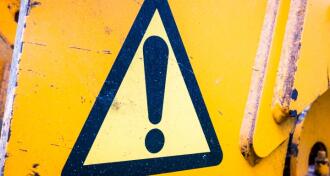We previously posted that the "health care provider" exemption from the obligation to provide "paid sick time" and paid "public health emergency leave" under the Families First Coronavirus Response Act of 2020 ("FFCRA") was limited to the traditional definition of "health care provider" under the Family and Medical Leave Act of 1993 ("FMLA") given the language of the FFCRA.
The U.S. Department of Labor ("USDOL"), however, recently posted new "guidance" on its Questions and Answers web page, asserting that "health care provider" has two different meanings under the FFCRA. Based on the most recent refresh of the website (as of noon on March 31, 2020), here is the latest.
For purposes of an employee's eligibility for emergency paid sick leave due to advice from a health care provider to self-quarantine, the USDOL indicates that such advice must come from a licensed doctor of medicine, nurse practitioner, or other health care provider as defined under the FMLA. This is not surprising since the FFCRA's emergency paid sick leave provisions specifically reference the FMLA's definition of health care provider.
What previously was unclear is whether the same definition of "health care provider" applies to the FFCRA's provisions that exempt employers from having to provide emergency paid leave to "health care providers." The new USDOL guidance says that it does NOT, and broadens the "health care provider" exemption from entitlement to emergency paid leave to include nearly any employee who is employed by a medical provider or an entity that contracts with a medical provider or that merely provides supplies to medical providers. Number 56 of the USDOL's Questions and Answers web page ("Q&A") indicates the following (emphasis supplied):
For the purposes of employees who may be exempted from paid sick leave or expanded family and medical leave by their employer under the FFCRA, a health care provider is anyone employed at any doctor’s office, hospital, health care center, clinic, post-secondary educational institution offering health care instruction, medical school, local health department or agency, nursing facility, retirement facility, nursing home, home health care provider, any facility that performs laboratory or medical testing, pharmacy, or any similar institution, employer, or entity. This includes any permanent or temporary institution, facility, location, or site where medical services are provided that are similar to such institutions.
This definition includes any individual employed by an entity that contracts with any of the above institutions, employers, or entities institutions to provide services or to maintain the operation of the facility. This also includes anyone employed by any entity that provides medical services, produces medical products, or is otherwise involved in the making of COVID-19 related medical equipment, tests, drugs, vaccines, diagnostic vehicles, or treatments. This also includes any individual that the highest official of a state or territory, including the District of Columbia, determines is a health care provider necessary for that state’s or territory’s or the District of Columbia’s response to COVID-19.
To minimize the spread of the virus associated with COVID-19, the Department encourages employers to be judicious when using this definition to exempt health care providers from the provisions of the FFCRA.
According to the USDOL, the employers described above may choose to prohibit any of their employees from taking "public health emergency leave" and "paid sick time" pursuant to the FFCRA, subject to USDOL's encouragement "to be judicious when" applying that expansive "definition to exempt health care providers from the provisions of the FFCRA."
A few practical notes:
- The Q&A is guidance from the USDOL. It is not the law. The Labor Secretary has the power to issue regulations, but they have not been issued yet, and that could take a while.
- Because the USDOL web site changes without notice, it may be wise for employers to keep a PDF copy of the website to support decisions that they may make in reliance on USDOL guidance.
- The last paragraph of the guidance implies that employers should apply this exemption on a limited basis, to prevent contact among people as much as possible. Again, an employer of the kind described "may" exempt its employees; it is not required to do so.
- Another "answer" in the Q&A indicates that, "if you employ a health care provider or an emergency responder [, then] you are not required to pay such employee paid sick leave or expanded family and medical leave[,] on a case-by-case basis." This suggests that employers in the health care industry can (and should) make exemption decisions on an individualized basis and consider whether certain employees are genuinely needed at work.
We will continue to provide you with updates as they become available in this rapidly evolving field.








